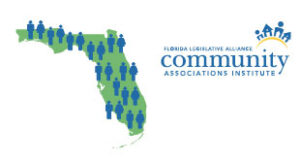Imagine: the association has just informed you it is set to begin a massive concrete restoration project. As part of the project, the contractor will need access to the rebar beneath the concrete slab connected to (or in legalese, “appurtenant to”) your unit’s balcony. To access the balcony slab, the contractor will have to remove the custom Italian tiles you just installed on your balcony. Who is responsible for the costs of the removal? Who is responsible to replace the tiles? The answers to these questions will largely depend on whether the governing documents of the association include an “incidental damage clause” and the specific circumstances of the situation, too.
In its most simplistic sense, an incidental damage clause in the declaration means that the association is responsible to repair any “incidental damage” caused by the association’s exercise of its maintenance, repair, and/or replacement responsibility. However, the existence or absence of such language is not always dispositive as to the repair responsibility. This is similar to “i” before “e” unless after “c” as there always seem to be exceptions.
For example, the repair and replacement obligation of the association may be limited only to damage caused to the unit and not cover any owner improvements to limited common elements, such as the balcony; or the obligation may be limited to damage to improvements only as originally installed by the developer, too. Whether the association or the owner will be responsible to repair the damage is highly fact-specific and will depend on the exact language in the governing documents of the association. Arbitration decisions of the Division of Florida Condominiums, Timeshares, and Mobile Homes (the Division), discussed below, provide some guidance as to when the association may be responsible for incidental damage and when the owners will be responsible to repair same. That said, bear in mind that such decisions are not precedential and in addition only apply to the parties in the arbitration that resulted in the Division’s order. However, it does provide a good understanding of how the Division may rule in a similar circumstance.
As discussed above, where the governing documents contain incidental damage language, and the association damages a portion of the unit while conducting its maintenance, repair, and replacement responsibility, the association is likely responsible for the repair. This is illustrated in Rock v. Point East Three Condominium Corporation, Inc., Arb. Case No. 99-0220, Final Order (September 29, 2000).
In Rock, the association removed a shelf located under a sink and several wall tiles in order to repair rough plumbing in the common elements. The association replaced the wall tiles but did not replace the shelf after the repairs were completed. The unit owner sought, among other things, to have the association replace the shelf. The unit owner also sought to have the association repair tiles in the dining room of the unit which had “popped up” as a result of an unrelated water leak. The association’s declaration of condominium provided that the association was responsible to repair conduits and rough plumbing and provided that “[a]ll incidental damage caused to an apartment by such work shall be promptly repaired by the association.” The arbitrator ordered the association to replace the shelf, holding that the incidental damage to the shelf was caused by the repair to the rough plumbing, which was the association’s duty to maintain. As such, the incidental damage language of the declaration applied to the shelf. However, the arbitrator held the association was not responsible to replace the tiles in the dining room, as the damage to the tiles was not incidental to any work the association performed to repair the rough plumbing.
Therefore, Rock clearly establishes that while an association is responsible to repair portions of the unit that are damaged as a result of the association’s exercise of its maintenance, repair, and replacement obligation, the damage must be incidental to the association’s work.
If the declaration requires the association to repair or replace incidental damage to the unit, the association will likely be responsible to repair and replace owner modifications to the units, too, unless the declaration provides otherwise. In Brickell Town House Association, Inc. v. Del Valle, et al., Arb. Case No. 95-0133 Final Order (September 12, 1995), the association was required to remove certain owner-installed alterations to the unit in order to access and maintain the common elements. The unit owners asserted that the association was responsible to replace the alterations in accordance with the incidental damage provision in the declaration of condominium. The arbitrator agreed, holding that the association was required to reimburse the owners for the expenses required to restore the units to the condition which existed immediately prior to the association’s reconstruction activities, including betterments which were added by the unit owners since the original construction of the units by the developer.
In accordance with the holdings in Brickell and Rock, if the governing documents provide that the association is responsible for incidental damage to the unit, the association will likely be responsible to repair any portions of the unit damaged by the association’s exercise of its maintenance, repair, and replacement responsibility, including alterations made by owners (unless specifically provided for otherwise).
On a different note, if the governing documents of the association contain incidental damage language which is specific to damage caused to units, then the association will not be responsible for incidental damage caused to owner modifications to the common elements or the limited common elements. Similarly, the association will likely not be responsible to repair any damage to any owner alteration to a unit where the declaration required association approval and the owner failed to obtain same prior to installation of the improvement.
In Continental Towers, Inc. v. Nassif, Arb. Case No. 99-0866, Summary Final Order (November 24, 1999), the association needed to conduct concrete restoration, waterproofing, and other repairs to the unit owner balconies. The unit owners had installed tiles on the balcony and argued that the association was responsible for the replacement of the tile because the declaration provided that the association was responsible for incidental damage to the unit. However, the balcony was part of the common elements, not the unit. Therefore, the incidental damage language in the declaration did not apply to the tile, and, absent any other agreement between the parties, the association had no responsibility to repair and replace same. The arbitrator concluded that:
…in the absence of an agreement between the parties or a controlling provision of the documents, ‘it cannot be said from the mere fact of association permission that the association has assumed the perpetual obligation to remove and replace the personal property when necessary to repair and replace the common elements.’ The arbitrator adopts the rationale articulated in the Carriage House case. Since the balcony is a part of the common elements, and the tile was not part of the original construction, the unit owners are responsible for its removal and replacement.
Further, where there are owner modifications which were not approved as required by the declaration, the association will likely not be responsible to repair notwithstanding the incidental damage requirement set out in the declaration. In Harrison v. Land’s End Condominium Association, Inc., Arb. Case No. 94-0298, Final Order (June 27, 1995), the association was required to remove an owner-installed balcony finish in order to effectuate repairs to the balcony slab. In this case, the balcony was considered part of the unit, and the declaration contained a provision requiring the association to repair incidental damage to the unit. The declaration also required the owner to obtain approval of the association before making any alterations to the bal-cony. However, the owner never obtained such approval. Therefore, despite the incidental damage provision, the arbitrator determined that the association was not responsible to replace the balcony finish because the owner did not obtain association approval as required by the declaration.
Therefore, if an alteration requires association approval and an owner fails to obtain such approval, the association will far more likely not be responsible to repair any incidental damage to the alteration notwithstanding the existence of incidental damage language.
Generally, the association’s repair obligation is limited to actual damage caused to the unit as a result of its maintenance, repair, and replacement obligation. If the unit owners are required to vacate their unit in order for the association to effectuate the repairs, the association is not generally responsible to reimburse the owners for the costs of same. However, as the Brickell case, discussed above, shows us, that is not always the case. In Brickell, the owners also argued that the association was responsible to reimburse them for the costs they incurred in vacating the unit for the repairs. In this case, the association chose to proceed with a method of repairing damage to common element pipes from the interior of the units, which required the unit owners in the affected units to vacate. The association did not explore an option in which the repairs could be made from the exterior, which would permit the unit owners to remain in the unit. The arbitrator agreed with the owners and ordered the association to pay for the costs the owners incurred in vacating the units. As you can glean, this case is very fact specific, which led to this outcome.
In an order denying the association’s motion for rehearing, the arbitrator in Brickell, reiterated its earlier decision that the board, within its business judgment, decided to proceed with a method of reconstruction that required the removal of the owners. Therefore, the expenses of those owners are a common expense to be borne by all owners. The important consideration in this case was the fact that the association proceeded with the repairs from the interior without exploring options to proceed from the exterior. The arbitrator notes that the order should not be construed to mean that an association would be responsible for accommodations for all unit owners in the event that the condominium building had to be tented for termites, or if a hurricane rendered the building uninhabitable. In those cases, all owners would be required to vacate the units, and there can be no other decision of the board. Additionally, in Brickell, if there was no way for the association to make the repairs that would allow the owners to remain in unit, the arbitrator’s decision may have been different. How-ever, as the association chose to displace certain unit owners to effectuate the repairs without exploring any other options, the association was responsible for the owners’ costs to vacate.
Finally, even when there is no incidental damage language in the governing documents, the association may be responsible for damage to the units if the association fails to conduct necessary maintenance to the common elements, when the association knows that such maintenance is necessary. In Dibiase v. Beneva Ridge, Arb. Case No. 92-0210, Final Order (January 19, 1994), the association was aware that the common element parking area was consistently flooding into an owner’s unit. The association retained an engineer to conduct a drainage study, and the engineer recommended several remedial measures to address the drainage problem. While the association took some remedial steps, the association did not follow through on the study’s recommendations. The arbitrator concluded that the association was responsible for the owner’s costs to repair the unit caused by the flooding. The arbitrator explained that, while “[n]o association is required to protect the property against a 100-year storm…” the association was responsible to take those steps reasonably necessary to protect the condominium property.
As the association had an expert report that advised if the association did not take certain remedial measures, the damage to the condominium property would continue, the association had an obligation to make the repairs. As the association failed to follow the report, it was responsible for the damage caused to the unit.
In accordance with the decision in Dibiase, if the association receives a report from an expert advising that certain repairs must be performed, and the association fails to take action, the association may be responsible for the costs of any damage to the units caused by its failure to act.
As you have likely gleaned from the foregoing discussion, it can be difficult to determine who is responsible to repair and replace improvements damaged during the association’s exercise of its maintenance, repair, and replacement obligations. Given the complexities of the issue, your association should consult with its legal counsel with any inquiries regarding the association’s responsibility for incidental damage.













